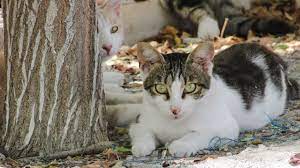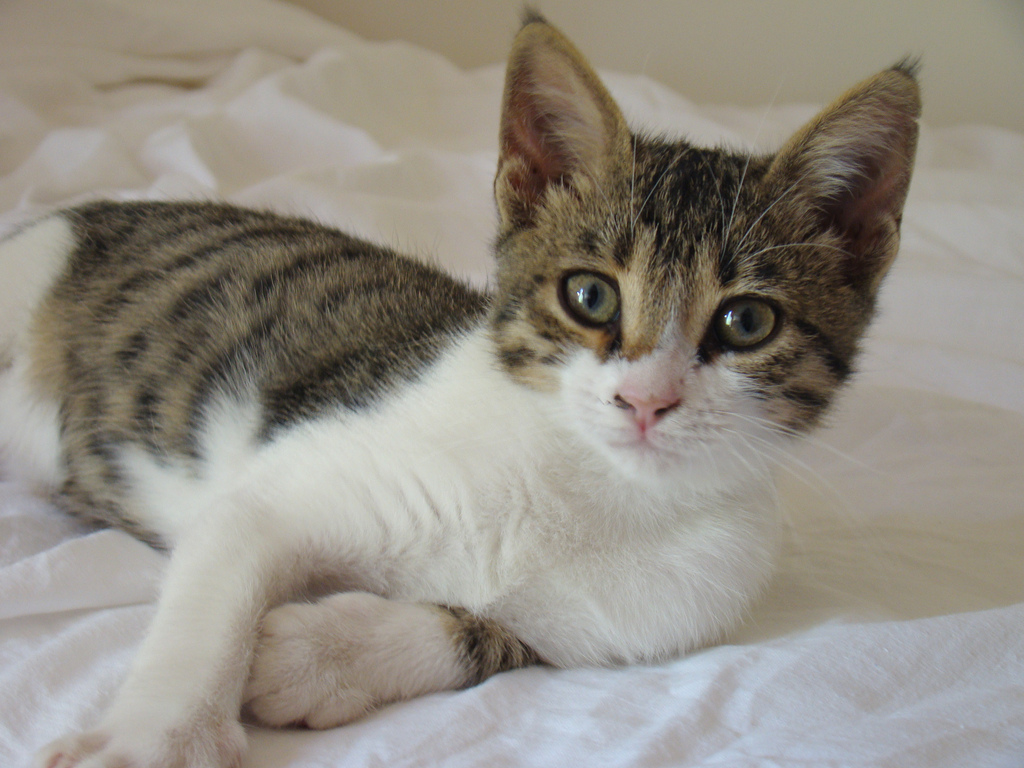‘Sai-phrus’ cat is the correct pronunciation of Cyprus cat. Other names of this cat are Cypriot cat, Saint Helen cats, and Saint Nicholas cats. Cyprus cats are social, playful, and active cats. They are naturally occurring cat breeds. Accordingly, this simply means they developed without the need for human interference.
Appearance and Characteristics of Cyprus cat
Cyprus cats have thick hair around their coat. To be more specific, hair develops from short-haired up to “semi-longhaired” in cat fanciers’ jargon. Cyprus cats are medium in size. They weigh between 8 to 16 pounds. Furthermore, the females are often smaller than the males.
Besides all this the thing to get to know as a Cyprus cat owner is that they are very energetic cats. So you will have to play with them in a regular manner to keep them entertained. However, there must be a living environment that is large enough to let the cat run around and explore. As it is usually good with everyone and can be very affectionate towards them.
| Size | Large or Medium |
| Coat | Medium, dense, sleek |
| Lap Cat | Yes |
| Life span | 12-15 years |
| Temperament | Affectionate, social |
| Weight | Male: 15 – 18 pound female: 10 – 14 pounds |
| Colors | All colors but there are the exception of chocolate, lilac, cinnamon, and fawn |
This is vital to ensure that Cyprus gets its required daily exercise, which will help keep the cat happy and prevent them from becoming frustrated and possibly developing behavioral issues.
Grooming and Care of Cyprus Cat
With their thick coat, Cyprus cats must be brushed regularly. As a general rule, these cats will shed more during the spring and autumn seasons, and the longer-haired Cyprus will shed more than their short-haired counterparts.
As part of your pal’s grooming routine, it is also important to brush their teeth, clean around their eyes, and clean their ears. If you are ever unsure about a feline-safe hygiene product or how to groom your cat safely, talk with your veterinarian on recommendations and helpful tips.
One of the crucial parts of any cat’s grooming routine is to cut their nails, this is required to be done in every few weeks or once a month.
Other than their grooming routine, another vital side of caring for a Cyprus cat is to make them do daily exercise. These cats are naturally an active breed, so having the opportunity to burn off their energy is necessary to your cat’s overall health and happiness. Keeping your four-legged friend active can likewise keep their weight under control. Don’t forget that every cat needs an age-appropriate and nutritious diet.
Common Health Issues
Overall, Cyprus is a fairly healthy cat. And as humans have not interrupted with their breeding, Cyprus Cat has the advantage of being unlikely candidates to developing common feline genetic issues.
Instead, Cyprus owners or parents should keep an eye out for more common health conditions that can affect any cat. Some of the Cyprus cats could include heart problems or issues with their teeth or ear infection. Making sure and keeping on top of your cat’s grooming routine and keeping them updated on their vaccines, shots, flea, and heartworm medicine, can all benefit your cat’s health.
Another key component of being proactive about your pet’s health is to always schedule a yearly appointment with your veterinarian. These annual checkups allow your veterinarian to keep tabs on your cat’s well-being.
Children And Cyprus Cat
The Cyprus cat is a perfect fit for families with young kids. As a kid and Cyprus cat parent, you need to make sure that early socialization takes place and boundaries are properly set on both sides.

Fun Facts
Now that you’ve learned all about the Cyprus cat, it’s time to enjoy reading some fun facts about these felines.
- The Cyprus cat is known by multiple names, including Cypriot cat, St. Helen cat, St. Nicholas cat, the Aphrodite, Aphrodite’s Giant, Aphrodite’s Giant Longhair, and Aphrodite’s Giant Shorthair.
- For years, these felines were concentrated around the inner highlands and mountainous regions on the island of Cyprus. Today, these cats now call all regions of the island home.
- These cats are known for hunting rats, mice, and lizards, in addition to snakes.
- Cyprus cats’ back legs are slightly longer than their front legs, a trait that they share with the Manx cat.
Price of Cyprus cat
Average 20,000 INR to 45,000 INR. Have you decided to buy a Cyprus kitten? On average, a Cyprus kitten costs between 20,000 INR to 45,000 INR depending on the breeder. But these cats aren’t as easy to find as many other breeds.

